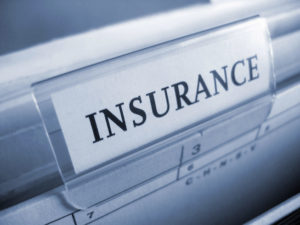Auto Insurance Terms You Need To Know
Before you invest in car insurance, there are a few terms that you should become familiar with for a better understanding of your policy. When it comes to auto insurance, you should never buy the first one that you come across; it’s always best to do your research and make an informed decision.
If you’re new to buying car insurance, or if you’re someone who doesn’t usually read through the policy thoroughly, you may find it difficult to understand what all of the terms mean. Make sure that you have an understanding of insurance language before you jump into buying it. Knowing what the lingo means allows you to choose a policy that suits all of your needs.

In this glossary, you’ll find commonly used auto cover words that will help you when making your choice:
Collision Coverage
This type of coverage will pay for your costs if your vehicle gets damaged during a collision. If it happened to get totaled during the crash, the coverage would replace your vehicle. The types of accidents that are covered by this insurance are mostly just those with another driver, but in some cases, those with an animal or inanimate object. If you get hit by a driver who doesn’t have insurance or if you’ve been part of a hit and run accident, you will have cover for the collision.
Comprehensive Coverage
When you have a damaged vehicle but it’s not due to a collision, a full coverage policy will pay for any of the harm caused. Natural disasters, theft, vandalism, and fire are just a few of the things that this type of coverage can protect you against in the case of damage. When you pay off the cost of your car, this coverage becomes optional, but it’s always worth keeping.
Deductible
Before your insurance starts, you must pay an out of pocket payment that’s known as a deductible. If you choose to have a higher deductible, it will lower your payment, but ultimately, you’d be paying more out of your pocket if you were ever involved in an accident.
Discounts
When you’re looking for insurance, you may notice that some of the carriers advertise discounts:
● One of the most common cuts is for excellent students, if they get grades that are B+ or higher, they can pay less for insurance.
● Many insurance carriers offer discounts to those with a higher education. The higher the degree, the more you save.
● If you have a clean driving record, you get classed as a safe driver and many insurance companies will reward you for this with savings.
● The lower mileage your vehicle has, the more discount you can receive.
● Some careers are seen as low-risk when driving a car. Depending on your occupation, you could be entitled to a discount.
Excluded Driver
On your policy, you can list people as excluded drivers. Many parents add their teenagers on as an excluded driver so that they don’t cause their rates to rise. If the driver that you have listed as excluded has an accident in your vehicle, they can’t use your coverage for the damage.
Liability Coverage
When you’re responsible for a collision, this coverage can cover some of the costs to the other driver.
Personal Injury Protection
Also known as PIP, this insurance will cover you regardless of who caused the accident. This type of coverage isn’t available in all states and will cover some of the following for everyone who was involved in the crash:
● Funeral Costs
● Hospital and Medical Costs
● Lost Wages
Quote
When you’re looking for insurance, you may find a few policies that have the same coverage, however, all of the companies will offer you different rates, or quotes.
